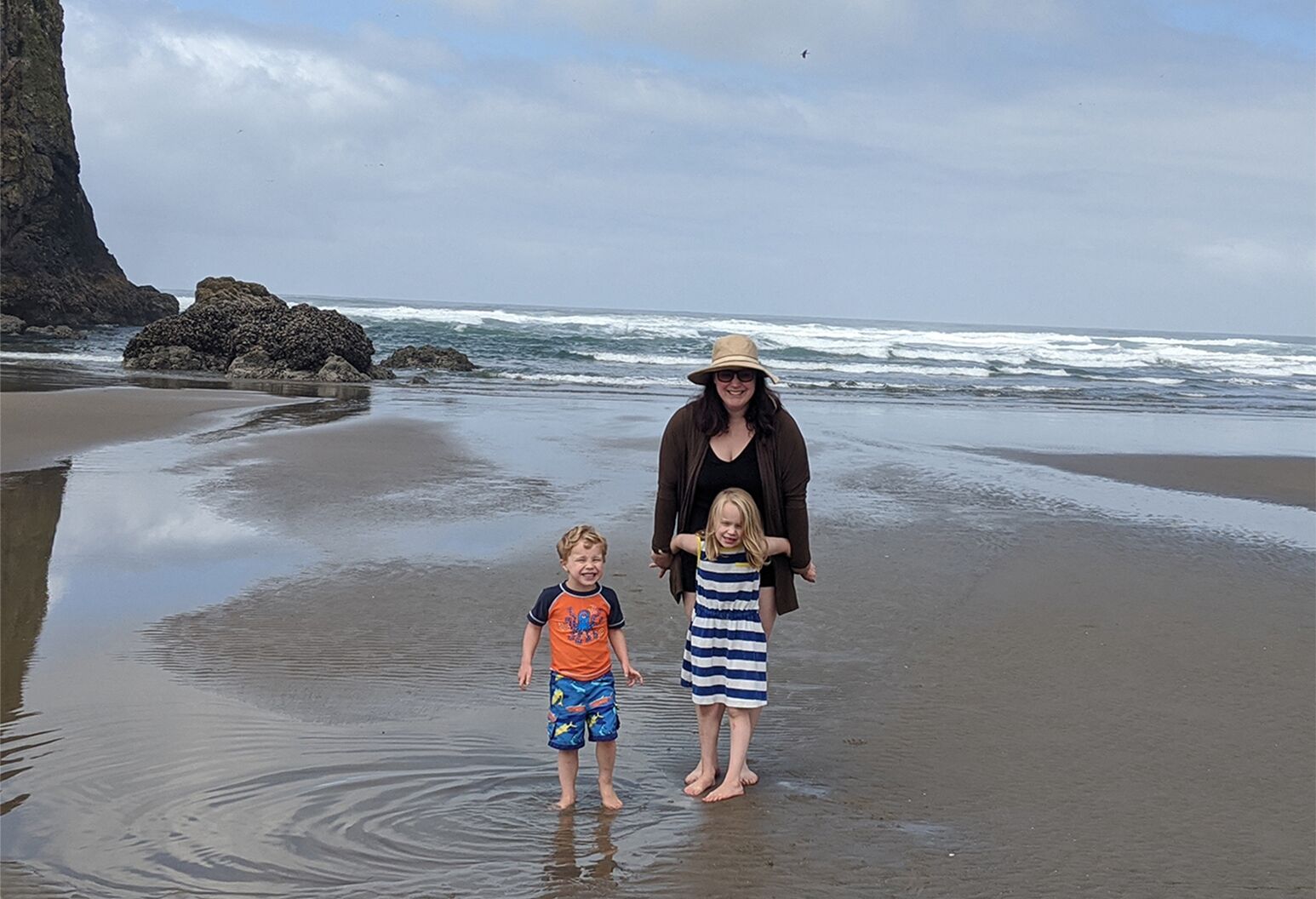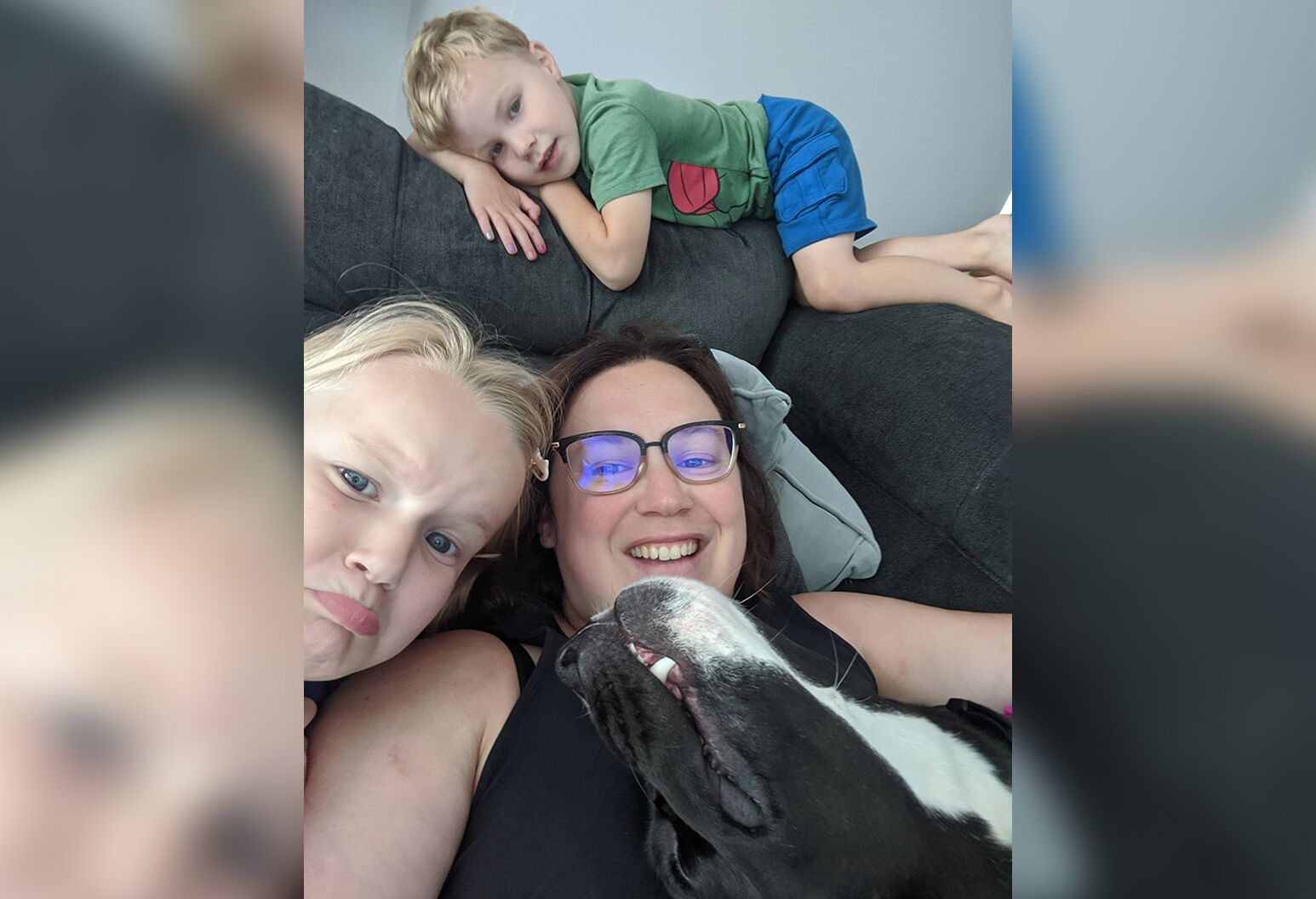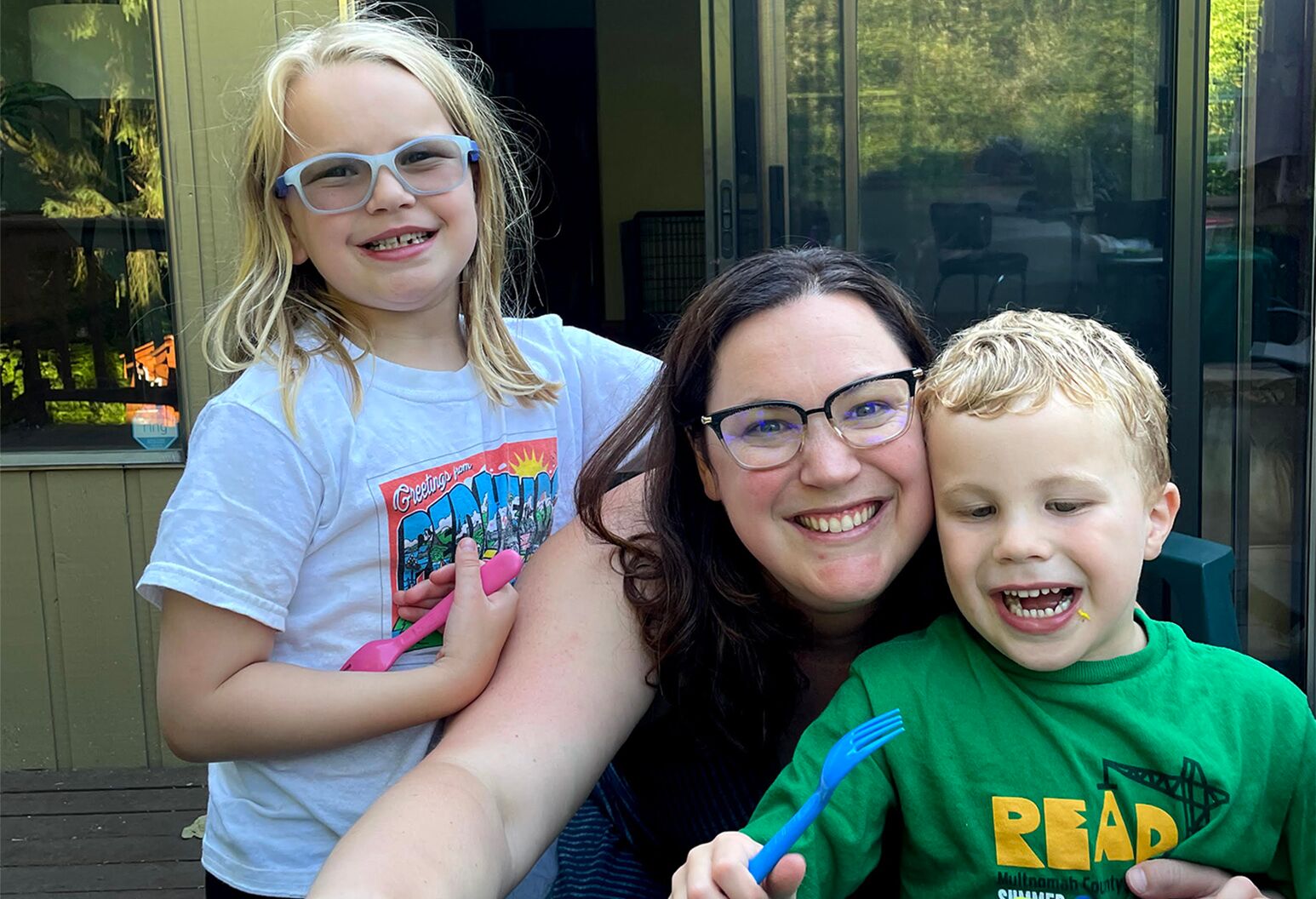parenting
My Ex Doesn't Want To Co-Parent

Our writer gives a thorough review of gentle parenting and what did—and didn’t—work for her neurodivergent kids.
7 min read
Before becoming a parent, I was a teacher. So, suffice to say, in my state of young, blissful ignorance, I thought, I have loads of experience with kids—I’ll be a natural when I have my own. But when that time did come, I quickly learned that all that “experience” amounted to very little when it came to my kids. (Cue snickers of understanding and knowing smirks from parents everywhere.)
Instead, what I found (and perhaps what any veteran parent could have told me) is that no matter how well you “know” kids, having your own is a whole other story, especially when it comes to moments of potential conflict.
As I transitioned into parenthood, I also moved into a new role professionally and became a parenting journalist. And, as an avid reader—and now writer—of parenting content, it wasn’t long before a new term blipped onto my radar: gentle parenting. Sometimes I’d see it referred to by other names, like “respectful” or “intentional” parenting, but the more it popped up, the more interested I became. You see, my kids are what my parents’ generation might call “spirited” and are neurodivergent. In truth, sometimes they are anything but gentle. They react strongly, especially when overwhelmed, and situations can escalate quickly.
So, in an effort to maintain a calm, respectful household—and for some good, old-fashioned story research—I decided, What the heck? and embarked on a journey into gentle parenting to see for myself if there was something to all the hype after all.
By providing your email address, you agree to receive email communication from The Well.
Gentle parenting is summarized as acknowledging a child’s feelings and the motivations behind any challenging behaviors, as opposed to correcting the behavior itself. The gentle parent holds firm boundaries, gives a child choices instead of orders, and eschews rewards, punishments, and threats.
Sounds pretty good, right?
Through my research, I learned that gentle parents do not put kids in time-outs, and they also don’t give out candy for good behavior. Instead, gently parented children are meant to learn from their adult caregivers that patience and empathy are the correct modes of operation. But would that be easier said than accomplished?
I figured that in order to best start on my journey toward gentler parenting, it might help to turn my lens inward and take stock of what my parenting style had looked like thus far. From there, I decided I could course-correct where needed. To do this, I started with a frequent friction point in my (and I’m sure many other) households every night: bedtime. Each night I might say something along the lines of, “Put on your pajamas and get in your beds right now!” And then, when my kids inevitably ignore me, I might say, “Did you hear me? I said to put them on right now or no TV after school tomorrow!”
In taking a step back, I realized that when met with friction, my parenting style turns authoritative. Of course, I didn’t actually do this as a rule, but, on a bad day, I might get there—and knowing that doesn’t feel good.

Armed with an area to try a different tact, I decided to put gentle parenting techniques into practice at bedtime. Now, instead of frustration and hurtling ultimatums at my kids, I say, “You look like you’re having so much fun playing! You don’t want to stop to put your pajamas on, do you?” This subtle change lets my kids know that their feelings are being named and validated—and no one is demanding anything of them.
From there, I can put a boundary in place.
“It’s bedtime in five minutes. Do you want to put pajamas on in three minutes or five minutes?” This allows them to have agency. Often parents forget the boundary-setting part of gentle parenting and let the children set the course based on the their emotional readiness. Here lies the path to ruin and chaos. Kids need and crave structure. You being lovingly in charge will be of comfort to them.
I’m a firm believer that no one philosophy of parenting is going to work all the time. For some kids, especially neurotypical, nonviolent children, gentle parenting is a lovely tool in the parenting toolbox, and is one that fosters mutual respect between parents and children.
That said, there are a few reasons why gentle parenting rarely works in my house.
One is the neurodivergent piece. A few years back, family coach and author Janet Allison of Boys Alive! gave a talk at my son’s day care about parenting young kids and stressed the concept of less being more when it comes to giving your young children directions. Especially with children with conditions such as ADHD—but also with toddlers—she says that using as few words as possible is the best way to get something done. So, instead of “Would you be ever so kind as to put your pajamas on, darling?,” you really should simply say, “Pajamas,” and you should say it over and over, in a calm but firm voice until the task is complete.
Additionally, some children are defiant, either occasionally or clinically. Even as little toddlers, when presented with two options, my children would simply say, “No.” When further pressed, in came the tantrums. No gentle analysis of feelings could stop that train. (Trust me, I tried.)
The main reason gentle parenting doesn’t always work in my house is the same as some of the main critiques I found in my reasearch. “What is bewildering about some tenets of gentle parenting,” one New Yorker article posited, “is their presentation of a validated child as a solitary child.”
For example, sometimes two children go head to head, and sometimes one child is gentle and one is not.
Going up to a child who has hit his friend and saying, “It looks like your friend took your toy. It doesn’t feel good to have someone take something from you does it?” ignores the victim. Yes, you can go up to the victim first, but that isn’t what gentle parenting preaches. In my experience as a parent to a kid more likely to be an aggressor than a victim, gentle parenting isn’t the method to employ when things go sideways.
Ross Greene, author of The Explosive Child, says, “Kids do well if they can.” But my kids can’t do well if they’re activated, and I know that. The other parenting “philosophy” I recommend when children are not gentle (though I wouldn’t call it a philosophy because it’s based on science), is The Whole Brain Child by Daniel J. Siegel, MD, and Tina Payne Bryson, PhD, which says that when kids are activated, they are unable to think rationally. Their brains go into flight or, in my kids’ cases, fight mode, and sitting them down and telling them you can empathize with how they are feeling is not something they are able to process at that time.

Instead, what is better is teaching them skills when they are calm that they can call on to help them get themselves regulated in moments of stress. Later, when everyone is safe and the moment has passed, break out your gentle parenting hat and talk about those big feelings.
In the end, I’ve realized this: Your child is an individual and, as such, no one theory, philosophy, or scientific study is going to explain how best to parent them in each individual moment of their lives. Unfortunately, you’re going to need to respond to their needs and the needs of those around them in the moment and use your best, most informed judgment.
The Well is Northwell Health’s commitment to the future of health care. In this time of information overabundance, much of which is inaccurate, unhelpful, or even difficult to understand, Northwell Health is on a mission to make a difference as an honest, trusted, and caring partner. The site connects with consumers to provide them with personalized content that reduces their stress, makes them laugh, and ultimately feel more confident and capable on their healthcare journey.